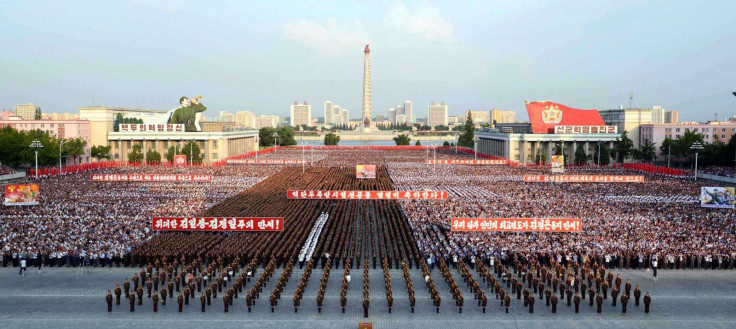North Korea's Punggye-ri nuclear site sees new signs of activity, satellite images reveal
The images show numerous landslides throughout the test site in the wake of Pyongyang's sixth nuclear test.
New activity has been detected at North Korea's nuclear test site as new satellite images show the Punggye-ri nuclear test site experienced numerous landslides as a result of Pyongyang's sixth nuclear test.
Satellite images detected new activity at the site's South Portal Area for the first time, indicating that the regime may be preparing other portals within the site for future underground nuclear tests, experts said.
North Korea's nuclear test site also suffered escalated water drainage in the North Portal Area, which according to experts at US-based think tank 38North, could have resulted from the recent nuclear test. Experts also said that such underground water flow could help "transport" radioactive particles to the surface.
Läslo Evers, head of the R&D Seismology and Acoustics department at KNMI and professor of seismo-acoustics at Delft University of Technology, told IBTimes UK that short-term affects of nuclear tests such as the one Pyongyang recently conducted could involve "vibrations and possible leakage of radiation". Evers also said that in the long term, "radioactive material can have a long life in the atmosphere and food chain".
Experts at 38North said that the most recent satellite images of the Punggye-ri site – from 8 September – show "mining carts on the rail line that extends from the West Portal to the spoil pile", which could be indicative of "new tunnel excavation activity".
"For the first time in over a year, activity was noted within the South Portal Area. A large tractor/trailer cargo truck was located in the area between the primary and secondary tunnel portals. The purpose of the vehicle is as yet unknown," 38North analysts said in a report.
"It remains to be seen, however, whether or not the North Portal will ever be used for another nuclear test. There are still two unused additional tunnel complexes (served by the South and West Portals) that are also deemed potentially capable of conducting nuclear tests, albeit for tests having lower yields than that of the sixth test."
Satellite images also showed the movement of a white truck in within the site's command centre area. Experts said that this truck may have been "involved in the transfer of test support equipment associated with the most recent test".
The UN has imposed additional sanctions on North Korea after the test. However, according to cybersecurity experts, Pyongyang's state-sponsored hackers have been ramping up attacks in cyberspace to steal cryptocurrency in an effort to get around the sanctions and fund the dictatorial regime.

© Copyright IBTimes 2025. All rights reserved.






















